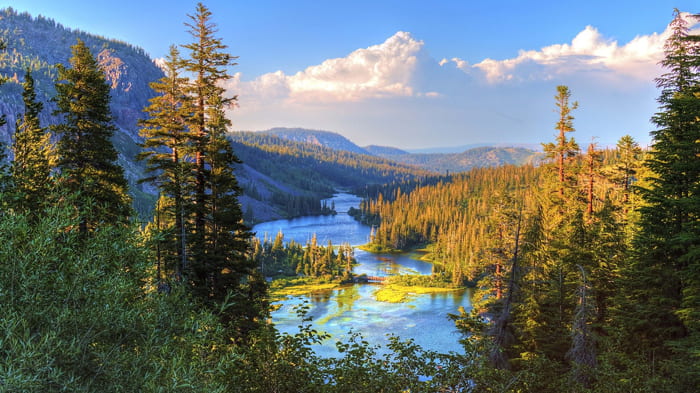About

Environmental Studies is an interdisciplinary undergraduate program of the Morrissey College of Arts and Science offering a major (B.A.) and a minor. ENVS is a distinct academic community drawn together around a shared purpose of transforming society to be ecologically regenerative, socially just, and economically secure. Solving the environmental challenges we face in the 21st century—climate change, freshwater scarcity, environmental pollution, biodiversity loss, food insecurity—requires a holistic approach, characterized by collaboration and integration across the natural sciences, social sciences, and humanities. In the Environmental Studies Program, students experience this rigorous interdisciplinary approach as they envision and implement paths towards sustainability. We also foster a campus-wide dialog about environmental challenges by sponsoring conferences, lectures and other events.
The Environmental Studies Program aims to empower students to be agents of change for a sustainable society. We meet this goal by:
Providing students with an interdisciplinary knowledge and understanding of the world's environmental challenges from scientific, societal, and cultural points of view.
Preparing students with a diverse skill set for a wide range of environmentally related careers and/or further graduate study.
Environmental Studies graduates are prepared for a wide range of careers:
- In alternative energy, working in sales, research, and development of renewable energy technology and infrastructure.
- In business, working in corporate research, responsibility, and sustainability, green finance and venture capital, entrepreneurial start-ups, or supporting philanthropic efforts in the environmental space.
- In education, as researchers and policy analysts for think-tanks, K-12 and higher education professionals, and leaders of nature, ecology, and conservancy organizations.
- In health care, as professionals in nursing, medicine, and public health, tackling issues at the intersection of human and environmental health.
- In the humanities, as writers, journalists, and critics who explain the science of climate change, describe its impacts upon ourselves and the other living beings with whom we share the planet, and communicate the ways we can successfully adapt.
- In law and politics, as advocates and analysts in a wide range of firms, foundations, and NGOs, as well as local, state, and federal government positions.
- In natural and social science, as researchers in environmental health and justice, climate change, biodiversity and conservation, agriculture and food systems, and watershed health.
- In natural resource management, working with governmental and non-governmental conservation agencies to protect wild species and ecologically sensitive habitats, and to restore ecosystem services.
- In urban and regional planning, to help communities adapt to climate change, mitigate greenhouse gas emissions, create sustainable food, water, sanitation, transportation, and housing systems, and correct racial, economic, and environmental inequalities built into the present-day urban fabric.

